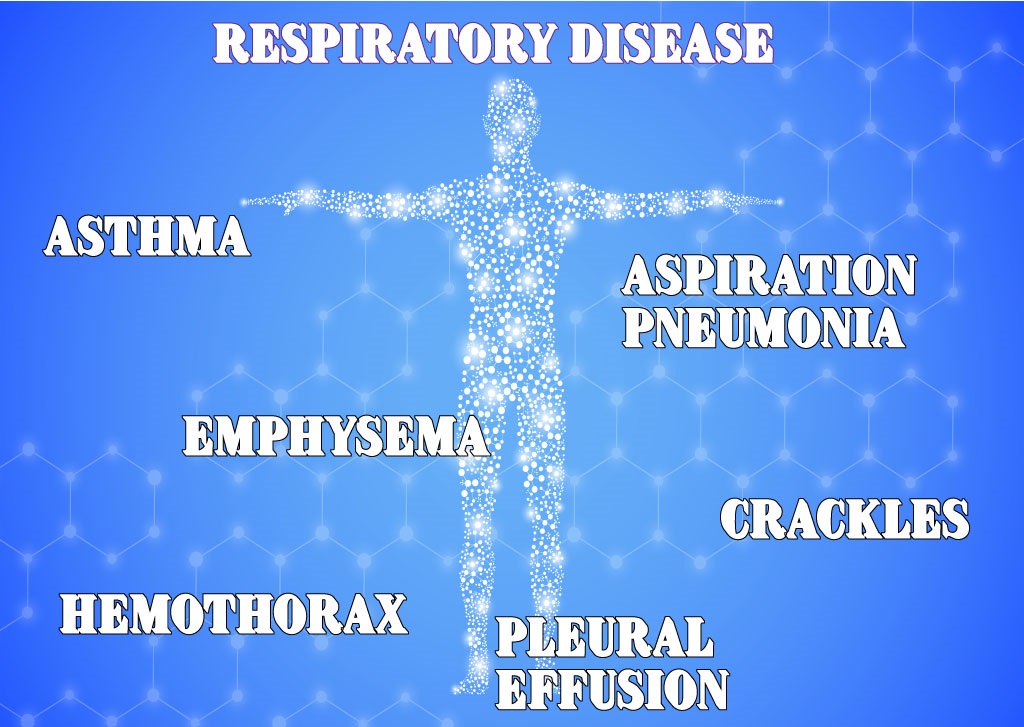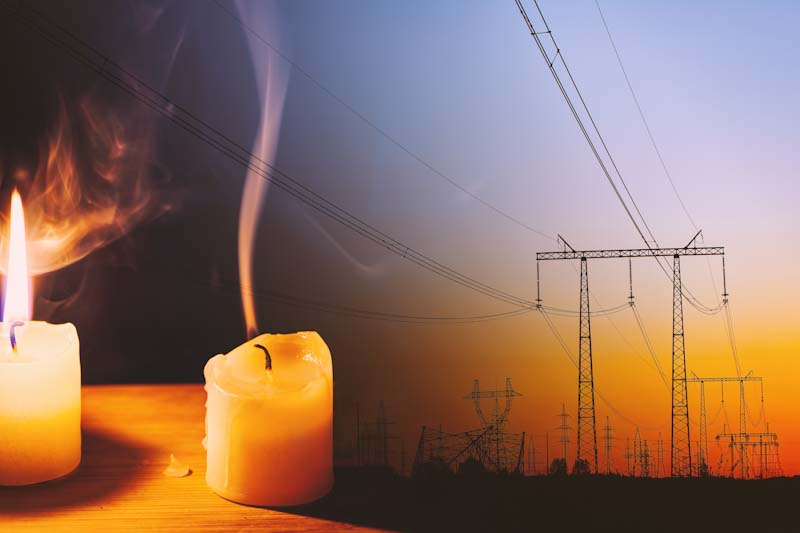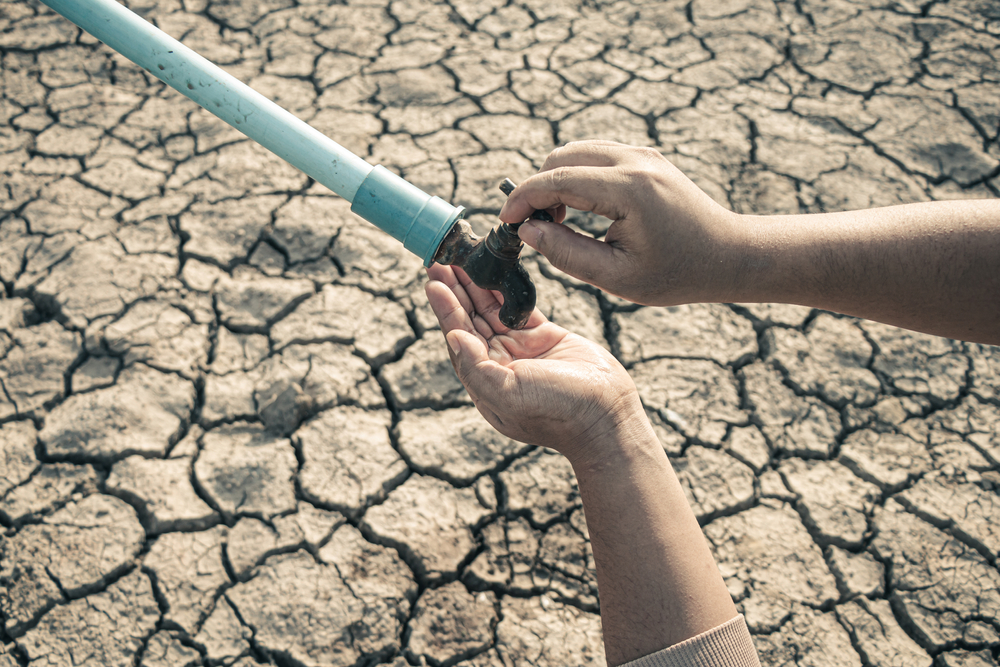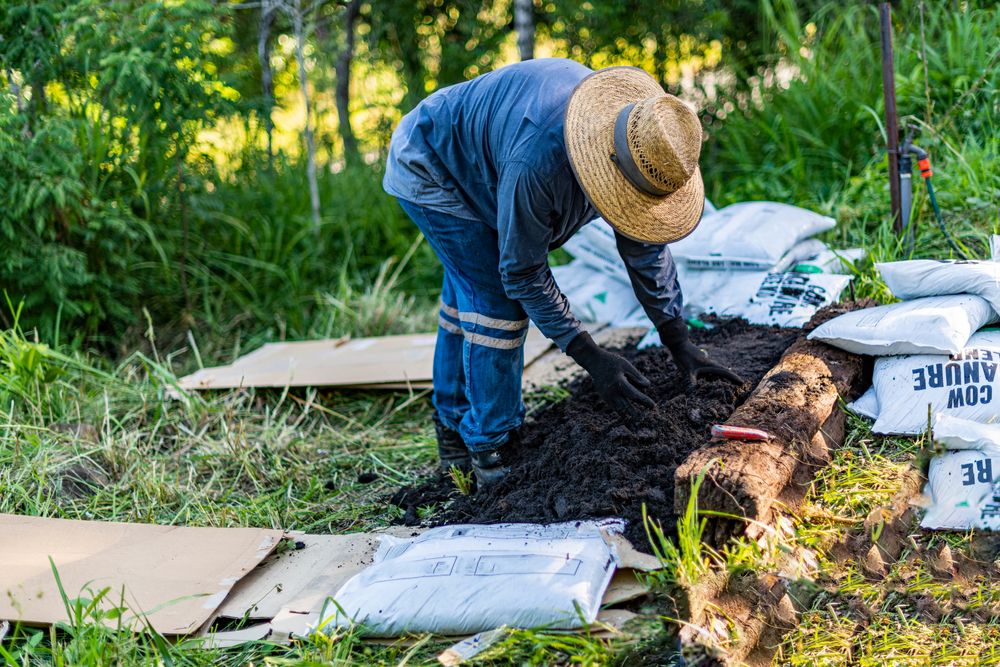Each time I go to the supermarket or the gas station, I am reminded of the fact that prices for daily needs have not gone down. As I look around me, I also see more and more pan handlers, homeless, and poor people in areas where they were not seen before.
On the other hand, mainstream media keeps pointing to increased participation in the job market, rising stock values, and other indicators the US economy is booming. This, in turn, has led to an increase in interest rates in a time when people are still trying to get back on their feet.
While there may be some promising signs that our nation is becoming more productive, there are also some very troubling signs that simply making money isn’t enough. In fact, we may well be headed for a time just about every prepper dreads – a time when you cannot use money to buy the necessities of life simply because things like food, water, and even clean air are no longer available. A nation’s economy is like personal finance in the sense that money counts for nothing if you don’t have something useful to buy. From that perspective, the United States, and perhaps the entire world may be close to an epic economic collapse. Have a look at these six signs and see if you can spot them in your own town or city.
1. Food Insecurity
No matter whether you are concerned about a blizzard, a hurricane, or civil unrest, the first supplies you are likely to think about revolve around food and water. In fact, you may have a few cans of beans, pre-packaged foods, and other items on hand that you don’t even bother eating because you are saving them for a crisis.
If you have ever gone to the supermarket just a day or so before a hurricane or other pending weather event, you already know that it becomes just about impossible to get certain items. For example, just about all the water will be gone, including the more expensive brands that collect dust for months on end. Likewise, you are likely to find empty shelves that usually hold beer, alcohol, (I always find that one to be a surprise because commercial alcohols have very little, if any medicinal value when compared to the historical herbal wines!) canned food, tomato sauce, and just about anything that doesn’t need heat for preparation.
During and after a relatively short-term emergency, the shelves may be restocked in as little as a day or two, or FEMA or some other organization will begin delivering foods as quickly as they can get into the area. While these occasions may cause you to give some extra thought to having larger food supplies on hand, they can also lull you into a false sense of security. By this I mean no matter how bad these situations may be, you will always have the hope that someone in a less damaged area will find a way to deliver food to you or rescue you from the situation.
These days, relatively few people realize a food shortage catastrophe is looming, and, of those, even fewer believe it’s serious enough to take steps towards self-sufficiency. For food and water needs. Here are some signs that even mainstream media can’t hide when it comes to the looming food shortage:
- Catastrophic floods, droughts, and other severe weather prevent the planting of spring, fall, and other crops. You have only to look at the weather this spring to see that there are many areas where food crops cannot be planted. This won’t just affect produce and other plant-based foods, it also affects animal farms that rely on grains and other plant-based foods for their livestock.
- We can’t close off trade with Mexico because we import too much food. Of all the obvious signs that our nation cannot feed itself; this is one of the worst. The fact remains years of bad trade deals and improper regulation of farms in the United States got us into this mess. Getting out of it is likely to cause food shortages and a few other problems.
- Many foods, including meat, are shipped to China for processing before being sold in the United States. If you thought losing the capacity to grow food was bad, the inability to process it is even worse. Nevertheless, once again bad trade deals signed by other administrations make it cheaper to send our farm goods overseas instead of keeping the food, and the jobs in this country where they belong.
- The cost of staple foods is going up. While the cost of garbage, toxin filled foods like soda and junk food are constantly going down, the prices of whole meat, canned vegetables, dried grains, and other vital foods is going up steadily. Right now, the average price of canned vegetables has risen anywhere from .10 cents to .20 cents per can. You can expect that to double or triple by the fall and go even higher in the winter months. If the prices stay the same, rest assured, the can size will be smaller, or the cans will have more liquid in them.
- The quality of fresh produce is going down. Fresh produce doesn’t last more than a day or two, if you can get it to ripen without it rotting first. These are all signs food is being kept in cold storage, and only released in smaller quantities.
Now, let me tell you a story. I grew up in a community where many people provided food for themselves and their family through hunting and gardening. For us, the garden wasn’t a hobby, it was a serious (albeit enjoyable) endeavour that was meant to provide enough food for both short term meals and longer-term preservation. As a child, I could not fathom a place in which you couldn’t just go out to the garden and pick a few beans or wander off to another place and grab some wild strawberries or raspberries while they were in season.
At the risk of sounding old, I remember well events like Live Aid and Hands Across America. Nevertheless, I could not imagine what it meant to be in a place like Ethiopia or other nations where famine took millions of lives, and still does. In school, we had a teacher that asked us what we thought could be done about the famines. Here are some of the answers my classmates came up with, and what our teacher told us:
- Grow plants for food – that wasn’t going to work because most of the areas where the famines were hitting had a severe drought or flooding, so no crops could be planted.
- Hunt animals for food or raise them – no help there because the wild animals were either all dead or had moved on well beyond the famine zone. Likewise, the domesticated animals had all been consumed because there was no grain or other food for the last of them.
- Walk (if you had to) out of the famine zone and get to some place that had food – Right about there our teacher sighed and went silent for a moment. He finally said, what do you not understand about starvation? Toddlers and young children cannot simply walk miles to get to food, and adults already weakened from weeks of limited food access can’t carry them. They are trapped where they are, because there is no food nearby, and possibly not even in the entire country.
From that day forward, I have asked myself repeatedly, what do you do when there is no food anywhere? What happens when the supermarket shelves are permanently empty, there is no edible food left to dumpster dive, no wild plants to consume, no animals or fish to hunt, and just flat out nothing left to eat? If there is one thing, I learned at school that day, it was you must think hard about these things and figure out how to grow food in impossible situations. Here are some things that I have tried and worked with over the years that may be of use during extended periods of food insecurity. The sooner you try these things and develop them into fully sustainable systems, the better chance you will have of being able to feed yourself and your family.
- Indoor and container growing – it does not matter why global weather patterns are shifting drastically. The fact is, they are happening, and if we and our families are to survive, we must have food. Rather than try to garden outdoors, you will need to be able to grow food in an indoor setting. This will reduce the risk of loss from flooding (if your home survives, the plants will too), drought, and theft.
- Micro gardening – chances are, you already know that MRE’s often have a much denser nutrient profile than regular foods. However, when those, and your other supplies run out, you will still need to find some way to feed yourself. Seed sprouts can have as much as 5 – 50% more nutrients than full grown plants. Learning how to micro garden and storing viable seeds for that purpose can offer you a tremendous advantage in times when no other food is available. Every part of a sustainable indoor garden should include at least a few plants that produce prolific seeds, that will, in turn, make edible sprouts.
- Aqua and hydroponics – You would be amazed at how small water based growing systems have become these days. When combined with just one or two fish, you can grow a larger number of plants in a very small area. Depending on the species of fish, you may also be able to breed them and then use them for food. While it does take some work and effort to set up a water-based food production system, it is worth the effort.
- Insect farms – If you don’t have a lot of money, and are limited in room for growing plants, insects are some of the most nutrient dense organisms on Earth. Grasshoppers, ants, and other small insects can be raised on garbage scraps, in shoeboxes, or even small aquariums. As an added benefit, if someone does invade your home looking for food, they will never think to steal the insects. Just make sure that you buy insect eggs from places where they have not been exposed to pesticides. Unfortunately, the rampant use of these poisons is making it harder and harder to rely on wild insects as a food source.
- Don’t waste food. Did you know that almost 1/3 of all food that people purchase in the store is thrown out? There are many places where people waste food. Here are some places where you might be wasting food. If you can tighten up on these areas, and focus on alternatives, you will save money and have a better chance of choosing supplies that will help you get through until you can grow enough food sustainably.
2. Water Shortages
When you hear about floods, hurricanes, and rising ocean levels, it may be hard to believe that potable water is becoming a rarer commodity every day. Here are some things that are rapidly leading up to a water shortage of epic proportions:
- Not so long ago, the Midwest was a “dust bowl” that could not be used to grow many of the foods we take for granted. This was all changed by the discovery of aquifers lying beneath the surface that were used to irrigate the land. Today, those aquifers are being rapidly drained, and will soon fail to produce sufficient water for the crops growing above them. Because aquifers can take decades to centuries to fill up, there is simply no way to fill them back up. Given the amount of land that needs to be irrigated, it is neither feasible nor practical to pipe water into these areas.
- Major waterways are polluted beyond use. No matter whether dumping trash, factory farm runoff, mines, pipeline leaks, or nuclear reactor leaks contaminate the waterways, the fact remains it takes a lot to make contaminated water fit to use for daily needs. Today, every major river, and most streams, ponds, lakes, and other natural water resources are polluted. To add insult to injury, underground water sources have also been polluted by leaks from factories, fracking, and other industries. The bottom line is when there is no clean water left to drink, none of these activities will matter to those who are left in the area and are dying of dehydration. If you think it can’t happen in your town or city, take at the water supplies that haven’t been treated by municipal water treatment companies. Sadly, many people that have well water near towns, cities, or major industrial projects can tell you that surface water, and even many of the deeper water wells now produce foul smelling, cloudy water.
- Increasing number of laws making water capture and water wells illegal. When someone else controls your access to water, they effectively control every area of your life, and your ability to survive. The more laws aimed at preventing you from securing water, the surer you can be that some major economic crisis is coming in which those who control the water intend to do whatever they want with you and your loved ones.
As with the people dying from famines, there may be no place you can go when potable water supplies run out. If you are to have a sustainable source of food, you must also have water. Here are a few ways that you can ensure a steady supply of water:
- If you have a rain capture system, make sure you also have a means to purify the water as well as distil it. In most cases, purification is enough, and will also help keep vital minerals intact in the water.
- Build or buy a system that will capture water from the air.
- Make sure you know how to use plastic and pits in the ground to pull water from the soil.
- Learn how to conserve and reuse water as much as possible. As a place to start, consider that 20% of the average water usage in the home goes to flushing the toilet.
- Grow some edible cactus and succulents. These plants all store water in their leaves and other areas and can do so for years on end. If you can find plants that will also store away cleaner water than they take in, you will be even better off. For a faster growing plant that also stores a lot of water, try watermelon.
3. Fuel Insecurity
Today, many people think nothing of going 10, 20, or more miles to go shopping, seek medical care, or work. We also live in an age where others think nothing of flying hundreds to thousands of miles to travel. Or receive products from all over the world. This includes purchasing food online as well as many other household goods that used to be purchased primarily from local stores that were within walking or bicycle distance. Quite frankly, even a small fuel shortage would have immense repercussions for just about every household. Here are some signs that we may have a major fuel shortage within the next 2 to 5 years:
- Russian aid and advice are being accepted in Venezuela. Aside from being an oil rich nation, Venezuela is also one of our closer neighbors geographically. We have already seen this chapter of the Russian play book at work in Syria. Russia steps in easily to support dictators such as Assad and Maduro, and then goes on to decrease US power in that nation and the region. Given how much power Russia now exerts in the Middle East via Iran and Syria, our options for obtaining foreign fuel at an affordable price are becoming dimmer by the minute.
- When Sarah Palin and others said “drill, baby, drill”, liberals across the nation said it was a useless option because it would take at least 10 years to get oil from those new wells. Instead, they wanted to invest money in solar power, which relies heavily on Chinese manufactured solar panels and semiconductor materials. While liberals also wanted to make use of wind technology, they never acknowledged just how tricky wind power can be to capture, or the cost of noise pollution from the wind farms. As sad as it is to say, if we had followed “drill baby drill” in 2008, we would now have oil from all those new wells instead of having to deal with increased consequences (like water pollution) associated with trying to get more oil from older wells. Remember, no matter how much people hate being tied to fossil fuels, the fact is most cannot live without it. When millions of people are dependent on these fuels for transportation, home heating, and other needs, it doesn’t make sense to have an energy policy that puts at the mercy of foreign countries.
- We have no viable community level replacements for existing fuels. From the Solyndra scam to the fact that we no longer have the factories and technology to turn rare earth minerals into solar panels, it should be abundantly obvious that decades of insane energy policy and trade agreements have left our nation in a bad way. A few hurricanes in the Gulf of Mexico or that region, large earthquakes in Alaska, or continued severe weather patterns in the Midwest that are bad enough to disrupt oil production, refining, and transport are just three possible ways our fuel infrastructure can be crippled at any moment.
- Increased regulations aimed at preventing home-based power generation or increased taxation on home-based power generation systems. Once again, when the government taxes or regulates a necessity of life, you can rest assured it is not a good thing. When you cannot do for yourself in good times, the loss of capacity in a crisis can easily lead to loss of life.
As you look at these grim signs of a coming fuel shortage, you may not want to think about steadily rising gas prices as further proof that we are in for some serious problems in this sector. That being said, the window for taking control of your personal fuel needs hasn’t closed just yet. Here are some things you can do to reduce reliance on commercial fuels:
- Try to carpool or use other transportation methods.
- Work from home as much as possible or find a job that is as close as possible to your home.
- Make sure that you can survive without buying tangible objects such as food, clothes, or other necessities online.
- Upgrade insulation and other parts of you home so you can reduce heating and cooling costs as much as possible.
- Use as many passive heating and cooling methods as possible to help reduce reliance on heating fuels.
- Build a solar cooker or oven and other devices that will enable you to cook without using electricity, gas, or other fuels that must be paid for.
4. The Southern Border Crisis
Anyone that thinks thousands of people demanding entry to the United States without proper processing isn’t a major crisis has no idea what it means to have to try and absorb all these people into our economy in a time when it is still struggling from endless bad foreign trade deals and other problems. For an idea of just how bad it is, consider what happens when a major disaster like Hurricane Katrina, which displaced upwards of 770,000 people[1], causes a massive influx from one state to another.
At the end of the day, the strain on the economies of the hosting states and the entire nation was enormous. Nationally, economic growth dropped by 1%, and taxpayers had to foot the bill for an enormous part of 215 billion dollars in uninsured damages. Consider these things:
- If we cannot take care of our own people, cannot give the best education to our own children, cannot afford ever soaring medical costs, and have veterans living on the street, how can we even think about making it easier for illegals to come into our country?
- When our own people cannot receive help from safety net programs such as food stamps and temporary housing aide, how can we even think about making a pathway for immigration to this country?
- Even though our economy is improving in some areas, vital high paying jobs in technology and other industries, and lower paying but stable customer service jobs are still being held by overseas outsource companies. The bottom line is we don’t have enough good paying jobs for our own people, let alone immigrants that have the potential to take those jobs.
- Many people in favor of relaxing immigration laws point to the fact that illegals are the only ones willing to work on our farms and other places where the work is hard or dangerous. Here again, our nation is at a horrible disadvantage because we don’t know precisely how many illegals are being killed by deadly pesticides that may ultimately be destroying our own health over time. When we cannot rely on a documented work force of American citizens that recognize their rights and are willing to fight for them, deadly foods find their way into our society where they lead to endless damage and death. The fact is, we need our own people working these jobs and in a position where they can reveal what is going on, because illegals and newly arrived legal immigrants aren’t likely to speak up and take a risk of being deported or ostracized.
No matter whether you are talking about healthcare costs associated with treating sick illegals, dealing with the diseases they bring in, coping with increases in rape, robberies, murder, and narcotics flow, or the sheer amount of space they occupy in housing and schools, the fact is illegal aliens cost taxpayers billions, if not trillions of dollars.
To add insult to injury, more than a few members of various militias have gone to the border. While these people are sincere in their efforts to back up the military and border patrol agents, they have received absolutely no thanks or acknowledgement for their efforts. Instead, border patrol, law enforcement, and other government agencies are slowly, but steadily disavowing the service of the militias.
The current case of Larry Mitchell Hopkins precisely illustrates what I’ve been saying for years about gun grabber policies, and why we should never allow the government to judge someone unfit to have a gun; including criminals and those who are mentally unstable. In his case, it is clear enough that impersonating a law enforcement officer is a crime. Sadly, it will not surprise me if he has mental or emotional challenges that lead to these behaviors.
These things, however, don’t mean that he doesn’t know when something is very wrong, and that action, possibly involving the use of firearms, must be taken to resolve the matter. The very fact that his group captured many immigrants illegally crossing the border is proof positive that border patrol and the military assigned to these areas are overwhelmed and unable to properly do their jobs.
The fact that his group did not kill the detainees and simply held them to await the arrival of law enforcement is also proof that they are simply trying to help in a way that is similar to the way any citizen can make an arrest in the absence of law enforcement. Instead of discouraging the militias and prosecuting them, it remains my contention they should be integrated into the response to illegal immigrants and used to their best capacity. This could be anything from helping with paperwork and documentation to helping to build the border wall; while those that can prove sufficient skills in capture and detainment should be integrated into various units for that purpose.
When our own citizens are arrested and prosecuted for sincerely trying to help our nation instead of redirected to a more useful response to a crisis simply because they are not “members of law enforcement, etc.”, it sets an unnecessary and dangerous elitist barrier between our people and the government. It is also proof positive that irrational gun grabbers have set our nation on the wrong path and will lead to the rise of blood thirsty terrorist groups like Boko Haram right along with, a very likely bipartisan dictatorship that will wind up dragging our nation into a full economic collapse within the next 5 to 10 years (if not sooner) via extremist controls of the population.
The crisis at the border involves every single citizen of the United States in one way or another. Gun rights, access to medical care, and many other aspects of our lives are impacted by this problem. It is very important to let local, state, and federal leaders know that you do not support increasing immigration quotas, nor do you support policies that make it possible for illegal immigrants to gain citizenship. With the notable exception of DACA recipients that can prove they were promised a path to citizenship, we, as a nation must face the difficult job of finding ways to seal off the border and send illegals back to their nation of origin as quickly as possible.
Many of the more recent caravan members claim they are seeking asylum from drug lords and other criminals that make it impossible to live in their own nation. I do believe these people would not leave their homeland if they could live there in peace. The problem is their home countries became dictatorships long ago, and these people have not had guns available for many generations for the purpose of self-defense against well-armed criminals. As with any other kind of bully, you must stand up and defend yourself, even if that may mean you will lose your life.
I often find it somewhat amusing when I find gun grabbers that are secretly armed to the teeth even as they try to limit gun access to others. If these people are so sure that guns aren’t necessary, perhaps we should make laws that take their guns away from them and give them to the illegal immigrants that they are also likely to support a path to citizenship for. I can think of no better way to use gun grabber paid for guns than to put them in the hands of illegals seeking to enter our country. All we have to do is train them and encourage them to have some spine when it comes to facing the bullies in their own country, and then send them home with the guns and sufficient ammo to do the necessary.
Aside from informing politicians of both parties that you want the policies mentioned above made into law, here are some other things you can do to make your voice heard:
- There are well documented cases of “sanctuary cities” that think President Trump is a criminal for saying that he will ship illegals to their cities while they wait for processing. Since they are already complaining about how much it would cost, it would be best to avoid buying anything in their cities as quickly as possible.
- If you do live in these cities look at things that have the highest tax rates and refuse to buy them. Since many rely on tobacco product taxes for additional revenue, now is a wonderful time to stop smoking. In a similar fashion, many of these cities may get state money from the lottery and gambling to help pay for other things in the state. Rather than gamble, save your money, or spend it on getting ready for a major crisis.
- When you are making vacation plans, or other travel plans, do not patronize these areas.
5. Increasing Rate of Respiratory Diseases
Most people cannot hold their breath for more than a few seconds without beginning to feel uncomfortable. As asthma and other chronic breathing problems increase, the cost of medical care also skyrockets. Today, in my opinion, far too many political leaders either deny the impact of pollution on lung capacity and health, while others who acknowledge it have no tangible answers when it comes to solving the problem. Simply look at the number of people around you using breathing inhalers, oxygen, or other respiratory assistance devices. This alone should tell you that a major crisis is looming, because when you cannot breathe, you cannot live. When you must use these kinds of devices or aides, each of which must be manufactured by someone else, prescribed by a doctor, and costs money; your life is in danger.
Contrary to the beliefs of socialists and communists, capitalism is a glorious thing because it puts the power of the purse in everyone’s hands. When you are not forced by government to hook up to the electric company, the water company, or purchase health insurance, those businesses must go back to old fashioned marketing and product usefulness to make money. Likewise, there are an endless number of polluting industries that you wind up buying from simply because you must satisfy some government regulation or building code or lose your home. It is, and remains, my belief that if people could actively choose to stop doing business with polluting industries, they would; and that it is excessive government control of the population that prevents the people from using capitalism to force changes in what these businesses produce; and how they do it.
Each time you breathe polluted air, you are one breath closer to having a chronic lung condition that will rob you of your capacity to live a normal life. Use air filter systems in your home and vehicles, and wear activated carbon masks when you go into stores or outdoors.
It is absolutely necessary to get rid of laws that prevent you from wearing appropriate breathing gear that will assist you in preventing polluted air from damaging your lungs. It is also just as necessary to get rid of laws whose result forces you to patronize businesses that pollute. Remember, every politician must eventually come up for election. During the time they are in office, you can still make your voice heard by writing to them and sending petitions, as well as investigating their professional alliances, as well as personal, investment, and business finances.
When elected officials do not comply with your requests, make sure that you and everyone else in the area choose someone in the primaries that will meet these demands, and then carry out your wishes once elected to office. Your power as a voter isn’t just one day of the year when you vote for a leader. It is also focused heavily on those you choose during the primaries; and how well you get to know each leader before and while they are in office.
6. Infrastructure Collapses
In the last few years, there have been a number of gas explosions in different cities across the country. It should come as no surprise that cash strapped cities full of homeless people and illegal immigrants cannot afford to maintain gas lines or other important infrastructure elements. While one or two gas explosions may not seem like much; consider that the piping and other resources were all installed around the same time decades ago. In a sense, gas explosions may well be like an infectious disease. They may start off in small numbers but will quickly mushroom across the nation. Here are some other signs of infrastructure collapse that can easily create a deadly economic collapse:
- Streets and bridges in disrepair. In 2018, it was estimated that at least 10% of bridges in the United States were deficient[2]. At the same time, highways, thruways, and private streets are all crumbling and filled with potholes and emerging sinkholes. We cannot survive without viable roads that enable us to go to work, shop, transport children to school, and ensure emergency personnel can get to places where they are needed.
- Increased number of church shootings, bombings and desecrations. Even though Notre Dame was not set afire by arsonists or terrorists, it brought to light the fact that many churches have been desecrated in the United States and abroad. The terrorist attacks in Sri Lanka should be yet another warning that we are on the verge of a global economic collapse as well as a national one. When criminals seek to destroy places of help, peace, and worship, it is a sure sign that people in our society have become incredibly sick.
- Rising crimes against the elderly, mentally ill, and the disabled. From nursing homes where the elderly are beaten, underfed, or abused to city streets where teens play games such as knock down, our nation has become a place where the elderly and disabled rightfully fear for their lives.
These and other signs of infrastructure collapse can be very difficult to deal with at the individual level. Nevertheless, some of it still comes down to demanding changes in various laws, and paying attention to how money is spent at the local, state, and federal levels. Here are some remedies that you should be pushing for at all levels of government:
- If you see roads in disrepair, call your leaders and tell them you want the money spent on the roads instead of paying for illegal immigrants, or anything that may appear in the local budget that you think is wasteful. Before you call, make it your business to find out how much your local area is spending on illegals or various budget items such as spending accounts for politicians and various officials. Remind politicians that you are a taxpayer, and you want your money to go on infrastructure needs.
- Today, some church leaders are, as the saying goes, “defending their flocks with a Glock”. If your church leaders are supportive of gun grabber policies, do not want you to carry a gun in their church, or do not have armed security guards, it is time to stop spending money and time in their establishments. Never forget that paying to pray is not praying at all. Instead, it is just others preying on your vulnerabilities, needs, and desires. In a time of need, you may be praying on the side of a road, in a broken-down vehicle, or in a hospital bed. You may be frightened, in pain, or have nowhere to turn. No church, congregation members, or religious leader may be on hand, but God will hear you just the same; and He may send help via people and methods well outside of the church systems. He may even empower you and inspire you to live through a situation unaided by others.
- Time and again, I have noted that gun grabber policies do more harm than good because they intimidate people from owning and learning how to use guns safely and effectively. The laws surrounding self-defense must be changed so that potential victims of a crime can shoot, with lethal force, if necessary, without fear of prosecution by the government. Laws surrounding gun types and accessories must also be disposed of as quickly as possible. It is also very important to investigate gun grabber politicians, gun grabber organizations, and gun grabber advocates to find out if they are gun owners themselves; and the kind of guns they have on hand. For example, if you find a gun grabber politician or organization that has “assault style” guns, large capacity magazines, or security guards with those kinds of weapons, it is important to inform everyone of voting age. If the media will not help you get the word out, then use word of mouth throughout the area. It is also very important to make sure gun grabbers are recalled, or at a minimum voted out of office, and pro-gun leaders put in their place.
As you look at these six signs of looming economic collapse, you may be thinking you see them all over the place. Unfortunately, simply seeing them and knowing of their existence is not enough. This is the time to take action to protect yourself from these problems as much as possible. Growing food, social engagement, and taking part in government processes may seem mundane, however these are the best tools for heading off these disasters as well as ensuring you can survive them.













Craig Swenson | March 26, 2022
|
Folks need to remember that the NRA was started after the Civil War in 1871 by ex-Union officers that were dismayed by the lack of marksmanship in new troops.. The growth of shooting sports for hunting and firearm safety was the result. https://home.nra.org/about-the-nra/
Craig Swenson | March 26, 2022
|
Oops. Wrong article for my comment. Oh well.